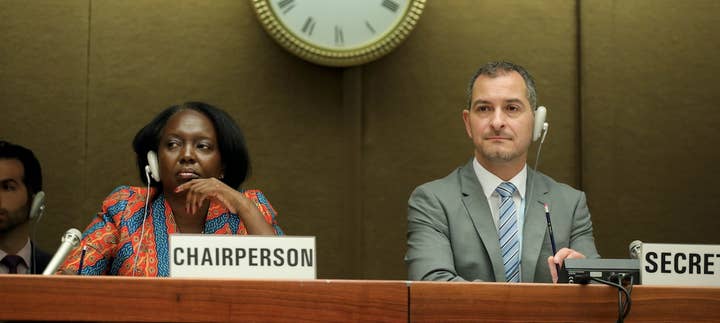World Health Organization makes 'gaming disorder' a recognised illness
Classification to come into effect January 1, 2022
The 194 members of the World Health Organization have recognised 'gaming disorder' as an illness at the 72nd World Health Assembly today.
The WHO finalised the eleventh revision of its International Statistical Classification of Diseases and Related Health Problems (ICD-11) in June last year, which included gaming disorder. The disorder is described as: 'a pattern of behaviour characterised by impaired control over gaming, increasing priority given to gaming over other activities to the extent that gaming takes precedence over other interests and daily activities, and continuation or escalation of gaming despite the occurrence of negative consequences'.
The WHO stated at that time that: "For gaming disorder to be diagnosed, the behaviour pattern must be of sufficient severity to result in significant impairment in personal, family, social, educational, occupational or other important areas of functioning and would normally have been evident for at least 12 months."
The illness was met with opposition by the global video games trade bodies, including the ESA, ISFE and UKIE, which highlighted contradictory research and statements on the subject. The argument from the trade bodies and its members was that more research needed to be done, and that gaming disorder was perhaps a symptom of a more serious underlying mental health issues.
The ESA went further, stating that the good video games do economically, creatively, politically, and in terms of education, health and a whole lot more, is put at risk by the the WHO's classification.
Despite the opposition, ICD-11 was agreed to be adopted at the World Health Assembly today. It will come into effect on January 1, 2022. The WHO says that the decision to include gaming disorder was based on reviews of available evidence and reflected the consensus of experts from different disciplines and regions.
The Organisation says that: "The inclusion of gaming disorder in ICD-11 follows the development of treatment programmes for people with health conditions identical to those characteristic of gaming disorder in many parts of the world, and will result in the increased attention of health professionals to the risks of development of this disorder and, accordingly, to relevant prevention and treatment measures."
Earlier this week, Microsoft spoke to GamesIndustry.biz about its own safety measures designed to protect children. The firm said it would look into measures on how it can help support older players, too.
Member States of the WHO noted that ICD-11 has been produced in a transparent and collaborative manner







.jpg?width=291&height=164&fit=crop&quality=80&format=jpg&auto=webp)

